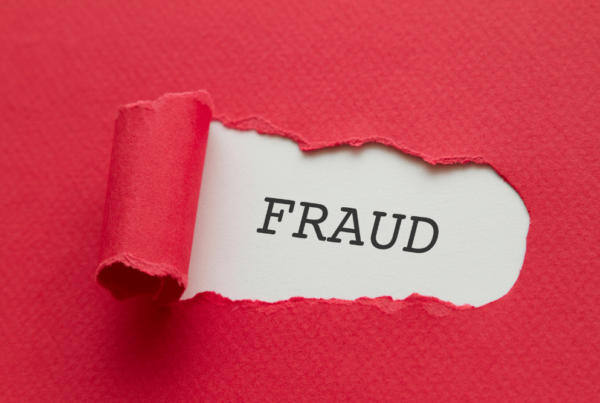WHITE COLLAR CRIMES
Federal Wire Fraud Defense Lawyer
Summary of 18 U.S.C. § 1343
18 U.S.C. § 1343 – Wire Fraud as a Federal Crime
In March of 2021, the Federal Bureau of Investigation’s (FBI) Internet Crime Complaint Center (IC3) reported a record number of public complaints of cybercrime reportedly costing Americans nearly $4.2 billion. In 2020, the IC3 tallied over 791,000 complaints—a nearly 70% spike from 2019 and the largest number reported since the IC3’s inception in 2000. Although part of this rise is attributed to COVID-19 pandemic-related scams, the IC3 receives a growing number of complaints each year drawn from a broad spectrum of internet-facilitated criminal activity, including computer intrusions, or hacking, corporate espionage, money laundering, and identity theft, just to name a few. As staggering as these numbers are, the FBI estimates that only 15 percent of all internet and other mail and wire fraud offenses are actually reported.
What Conduct is Prohibited Related to Wire Fraud?
18 U.S.C. § 1343 criminalizes the devising of (or the intent to devise) any scheme to defraud or to acquire money or property under false pretenses, by use of some form of electronic communication (wire, radio, television, internet, or even instant messages and text messages) in interstate or foreign commerce.
Specifically, to convict an alleged offender under § 1343, a federal prosecutor must prove beyond a reasonable doubt that:
- the defendant knowingly devised or participated in a scheme to defraud someone by using false or fraudulent pretenses, representations, or promises;
- the false or fraudulent pretenses, representations, or promises were about a material fact;
- the defendant had the intent to defraud; and,
- the defendant transmitted or caused to be transmitted by [wire, radio, television or internet] some communication in interstate commerce to help carry out the scheme to defraud.
However, the government does not need to prove that the information itself was false or fraudulent, or contained any request for money, property, or something else of value. Nor does the government need to prove that wire communication was an essential part of the fraud scheme. The government or federal prosecutor only needs to prove that the use of wire communication furthered or somehow advanced the underlying scheme to defraud.
Additionally, each such wire transmission may count as a separate violation of the wire fraud statute.
What Are the Possible Legal Penalties?
Offenders convicted under § 1343 face up to 20 years in prison, fines up to $250,000, or both. If the violation affects a financial institution or involves any benefit related to a presidentially declared major disaster or emergency as defined by the Robert T. Stafford Disaster Relief and Emergency Assistance Act (42 U.S.C. § 5122), the penalties for conviction increase to a maximum of 30 years in prison and up to $1,000,000 in fines, or both.
If the violations involve telemarketing or email marketing, convicted telemarketing or email marketing offenders face a 5-year sentence in addition to any prescribed sentence under the statute, or an additional 10 years in the mail and wire fraud violation if the victims are over the age of fifty-five, or if the defendant targeted individuals over this age.
The attempt or conspiracy to commit a mail and wire fraud offense is punishable under 18 U.S.C. § 1349 and carries the same conviction penalties as the underlying mail and wire fraud offense that was the object of the attempt or conspiracy.
Sentencing Guidelines
The United States Sentencing Commission (USSC) publishes a federal sentencing Guidelines Manual in which an advisory sentence range for all federal offenses is listed. Sentencing judges use the Guidelines to determine the appropriate sentence for a defendant convicted of a particular offense. While judges are still bound by any mandatory sentences that apply to a given offense, they may depart from the sentencing range by increasing or decreasing the base offense level penalty for a given offense. For each offense, the Guidelines note certain factors that can either enhance (increase) or mitigate (decrease) an offender’s ultimate sentence.
For wire fraud violations, §2B1.1 of the Guidelines applies. The base offense level for a § 1343 violation is 7, which provides a range of 0 to 21 months in federal prison, depending on the offender’s criminal history. Certain characteristics of the specific offense can also increase the offense level—one of which is the loss amount.
Hypothetical Situation of Criminal Wire Fraud
An executive officer of a publicly traded company was convicted of wire fraud that included a securities law violation that involved $2,000,000 in losses.
Applicable Guidelines
- Base offense level for wire fraud crime – 7
- Loss amount greater than $1,500,000 (but less than $3,500,000) – add 16
- Involves a securities law violation where the defendant is an officer of a publicly traded company – add 4
With the two enhancements, the hypothetical defendant’s offense level is now 27 (7+16+4), which carries a sentencing range of 70 to 162 months (5 years, 10 months to 13 years, 6 months) in federal prison, representing a substantial difference from the base offense level range of 0 to 21 months.
18 U.S.C. § 3553(a) includes factors that sentencing judges should consider when determining a defendant’s sentence. These include certain mitigating circumstances that may result in a lesser sentence.
Are There Any Related Offenses to Wire Fraud?
Because of the breadth of the statute, a wire fraud offense may constitute a violation of, or otherwise overlap with, any number of related federal offense. For example, wire fraud may serve as a predicate offense—where it constitutes some of the elements of another federal offense, such as racketeering (18 U.S.C. § 1961-1964) and money laundering (18 U.S.C. § 1956 & 1957). Wire fraud may also overlap with fraud offenses prescribed under jurisdictional circumstances other than those involved in wire use, such as bank fraud (18 U.S.C. § 1344), health care fraud (18 U.S.C. § 1347), securities fraud (18 U.S.C. § 1348) and foreign labor fraud (18 U.S.C. § 1351). Wire fraud may also overlap with honest services fraud as it relates to bribery and kickbacks, such as the bribery of federal officials (18 U.S.C. § 201), bribery involving federal programs (18 U.S.C. § 666) and obstructing commerce by extortion under color of official right (42 U.S.C. § 1320a-7b).
Significant Cases of Wire Fraud in the News
The breadth of the wire fraud statute is matched only by the equally diverse range of alleged offenders, representing a wide range of industries and individuals from the most highly ranked executives, to the those in entry-level roles.
In April of 2021, Kenneth Werkau, an associate in a Clarington, Ohio Walmart, was indicted on three counts of wire fraud. Werkau was accused of stealing over $123,000 in gift cards and activating them without paying for them. Werkau faces up to 20 years in prison and up to $250,000 in fines for each charge.
In October of 2017, Jay Edward Wilkins, chief financial officer (CFO) of a Baltimore, Maryland business, pleaded guilty to wire fraud crime and aggravated identity theft charges for a scheme to defraud his company of over $700,000. Wilkins had been accused of diverting corporate funds for his own personal use and using the personal information of current and former employees. On numerous occasions, Wilkins changed the direct deposit information on employee payroll accounts to cause the payroll company to send more than $700,000 in fraudulent payroll payments to his own account. In addition to fines, Wilkins faces up to 20 years in prison for the wire fraud count and another 2 years for aggravated identity theft.
Contact a Wire Fraud Defense Attorney With the Experience You Need at Azhari LLC Today!
We handle federal wire fraud cases across the United States. Our criminal defense lawyer knows the Federal Rules of Criminal Procedure, as well as local rules for specific jurisdictions. We represent clients from the investigation phase through the trial. Contact a criminal defense lawyer with Azhari LLC today if you have been accused of wire fraud or any federal crime in the United States.
White Collar Crimes
Recent Posts






